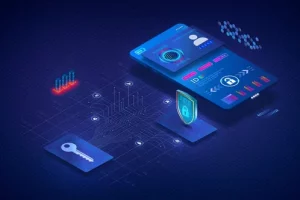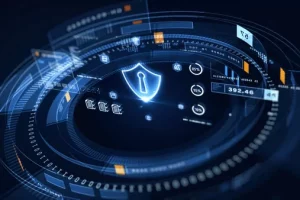Challenges Faced by Students in Cybersecurity
- Posted by 3.0 University
- Categories Cyber Security
- Date July 2, 2024
- Comments 0 comment
Most young learners lack the education or skills needed to handle cybersecurity issues. Let’s see why, what and how!
Schools must not only emphasize IT and cybersecurity in the computer science curriculum through practical introductions to technologies, but they also must make the entire school community aware of the potential benefits and hazards of the internet.
Balancing Security and Privacy
It becomes extremely troublesome for the students when they have to handle different activities simultaneously, i.e., to ensure both their security and privacy.
While creating complex security settings and implementing two-factor codes are ways to manage risks, they may be equivalent to the threat of prying.
For example, one might think that using so many passwords is excessive, but it’s acceptable if you understand the benefits and feel safer.
Understanding these exchange pieces is an important step that will help individuals make the right privacy decisions.
Keeping Up with Evolving Threats
Cybercriminals’ ever-changing tactics necessitate not only constantly vigilant enterprises, but also user preparation.
Only by enabling self-updating and implementing proper measures or flame walls that periodically expel malware can end users be secure, thereby enhancing their security.
The Role of Education in Cybersecurity
Integrating Cybersecurity into curricula
The cyber-awareness programs organized in schools can provide a push to the students’ learning process as well as a cushion against the many vulnerable cyber-attack points.
To reach this level, schools will need to develop specially structured cybersecurity courses and make practical use of both cyberworlds. The digital world offers specific content such as digital literacy, ethical hacking, and data protection, which students can benefit from.
Attending cybersecurity workshops or training sessions allows the participants to interact first-hand with the topics, obtain a thorough understanding of the problems, and build up various practical skills.
This not only enhances technological convenience but also advances the essential work skills that students will need in their future work environments.
These serve as a tool to connect students with real-world scenarios and issues in the field.
An electronic central bank must include online resources, forums, and communities so that students can access the information and support they require.
It is evident that connecting to such communities could boost one’s achievement in the domain and further increase the group of colleagues.
They should defend their personal information online, of their own volition, and actively participate. Additionally, this consists of creating proper passwords, using two-factor authentication, and setting privacy settings on social media.
To Recognize and Avoid Phishing Scams
Phishing scams are very common online attacks that entice users to enter important information on a fake webpage.
Students should participate in phishing prevention workshops to reduce the risks, and they should always be cautious when encountering any suspicious links or sharing personal data with unknown resources.
How to Spot Phishing Attempts
Watch out for arsonists who are working hard to obtain your personal information, such as passwords, account numbers, and credit card details,
mail or SMS.
You should exercise caution as an intruder could easily access your personal information once they obtain the banking details.
Hey, just be careful! Your credit card information may be in the wrong hands, and the thieves may email or text you otherwise. Every single day, scammers pull off countless phishing attacks like this one, and unfortunately, they often manage to succeed. Sad, but true; usually, they are the winners.
Here are some common tactics used by scammers in phishing emails and text messages.
Absorb the fact that fraudsters are continually renewing their ways of duping the more unsuspecting individuals. Be on the lookout for those sly phishing emails and texts! Yo, I just have a little trick to show you!
Have you ever been in a situation where people told you stories to entice the user to click on the links, or perhaps they asked you to open an attachment? It is a common modus operandi. I kind of figured I should be the first to let you in on this.
Hey, just a ‘FYI’: Expect an unexpected email or text from a bank, credit card, or utility provider. It is possible that this comes from a payment app or website.
You know people who are trying to convince you that the cat that will resemble them could, in fact, be the other way around.
If you notice any doubtful action or if anyone attempts to steal your account without your permission, you should immediately take action.
It’s your moral onus to report it! Of course, with all humility!
Having trouble with your account or payment information may prevent them from helping.
No need to verify personal or financial information and avoid unfamiliar invoices.
So, here’s the deal: there’s this sneaky scam going around where they send you a fake link asking for money.
However, it’s important to note that the link in question contains malware!
Furthermore, they dare to assert that you qualify for government refunds! Can you believe it?
What about getting something for free with a coupon? Yeah, that’s definitely a scam.
Being Careful Online
Being cautious when using the internet is crucial for ensuring one’s safety and security.
You can achieve this by avoiding visiting dubious websites and keeping all electronic devices up to date.
It is up to the younger generation to take the lead and adopt privacy and security-conscious behaviours within the context of social media.
Will Digital Security Be a Gamechanger in the World of Cybersecurity?
Innovations and Threats
The next big things in the cybersecurity sector may be innovations from the past, which could complicate the future by making existing threats even more dangerous due to technological advancements.
In the near future, technology alone will bring a new kind of cybercrime to the professionals confronting it, particularly artificial intelligence, quantum computing, and the Internet of Things (IoT).
Summary
The necessity of regulating cybersecurity laws and values is undeniable, especially for students in the digital age.
The practice of discipline in compliance with legal bounds and moral codes, as well as the making of personal decisions never to share any secrets, will enable the students to reach a place of personal security—not speculatively, partly through the education of privacy.
Finally, there has been a paradigm shift among some users, where they are actively participating in the creation of a safe online community.
Education and constant learning will be the primary tools that students will use to fight the threats of digital domains.
Students practice ethical behaviour in the virtual space, and their possession of knowledge of the newest technology will not only facilitate their survival, but they will also be able to flourish in the digital era.
You may also like

Firewalls & Future of Cybersecurity Careers in 2025


